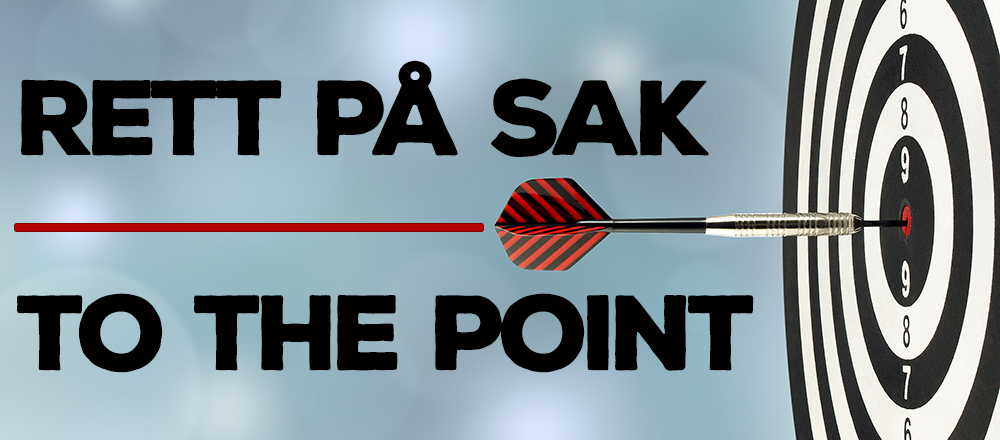PETRA ANDERSEN for Forskningspolitikk
What is stakeholder capitalism, and why all the hype right now?
We are in the midst of an age of buzzwords where both scholars and practitioners make active use of new and popular catchwords. The words transformation, innovation and ecosystem are only a few examples of terms trying to describe development and growth in our society. Another strong, but not that new, candidate is stakeholder capitalism.

Towards a stakeholder concept
An increasing number of large organizations operate with a purpose, both as entrepreneurial arenas, businesses, and social philanthropists. Today, people expect more from companies, and ask for an inclusive and participatory approach from businesses. Traditional corporate social responsibility (CSR) is not enough.
We are entering into another type of society where people and institutions work together. We are moving from short term shareholder maximization to stakeholder responsibility and engagement. In the 1960s and 70s and in “the good old days” of the economist Milton Friedman, the purpose of business was to maximize profit, as in maximizing shareholder value (MSV1). Citizens and stakeholders were not even considered as a resource and means for creating value.
The MSV-ideology continued to dominate strategic thinking in business schools and corporate boardrooms in the 1980s, and the globalization of businesses strengthened the shareholder primacy.
During the same period, Western Europe and the Nordic countries started to develop alternative stakeholder concepts and welfare states built on taxes.
The New Keynesian economist Joseph Stiglitz was an early supporter of stakeholder capitalism and considered it to be a principle of corporate governance. Corporations should serve the interest of all their stakeholders, and not enhance shareholder value at the cost of other stakeholder groups.
The value of everything
Companies and organizations connect and share value, and an increasing number of public-private partnerships are now grounded in risk sharing and the use of joint resources. Moreover, on the political level there is a shift from only using financial incentives and Gross Domestic Product measurements (GDP) to new ways of creating and understanding shared value.
Traditional GDP statistics are not based on a comprehensive theory of value and fail – for instance – to account for environmental costs.
In the book The value of everything2, Mariana Mazzucato argues that we have lost sight of what value really means. The real value added by government and public goods and services has for instance been ignored over the years. We need an integrated view that both recognizes how value is created and extracted in the current system and in the whole of society. According to Mazzucato, the value of a healthy, sustainable planet, community and quality of life must therefore be returned to the heart of economics.
Stakeholders
The shareholder was, according to Friedman, the only interesting stakeholder. In his view, companies create value and growth by making profit to satisfy its shareholders, and not by serving society.
The United Nations (UN) sustainable development goals (SDGs) represent a different approach. Their understanding of value creation correlates with the triple bottom line concept where businesses not only measure profit – “the bottom line”, but also commit to measuring their social and environmental impact3.
Another related and more recognized concept is Corporate Social Responsibility (CSR)4. CSR is a self-regulatory business practice where companies measure their impact on society – including all economic, social, and environmental aspects.
A key contributor to both the triple bottom line and to CSR is the stakeholder5. The stakeholder theory states that companies must include interests from many groups of people, often with different preferences.
This more liberal approach to stakeholder engagement may nevertheless be counterproductive as the interests of these groups do not always lead to the development of a healthy society. Therefore, we need reporting frameworks as the UN development goals which are designed for stakeholder inclusion to foster a better future.
Restructuring capitalism
The financial crises in 2008, as well as the current Covid-19 crisis, have shown us the importance of establishing a stakeholder model when addressing global challenges.
“The Greta Effect” (named after social activist Greta Thunberg) has been creating a push towards gathering stakeholders with a common purpose and has caused many company leaders to take a greater interest in climate actions.
We must continue to restructure the traditional concept of capitalism and implement a more inclusive culture, as well as new tools and governance methods for businesses, governments, and society at large. A mission-oriented approach to capitalism is one method for multi-level stakeholder’s participation, and requires open mindsets, and new ways to create, communicate and share common goals.
The backlash
However, there are worrying signs that the predatory value extraction as MSV still prevails as new business models, often represented by the “gig economy”, illustrate. These business models often attack employment, laws, taxes, and welfare policies.
Milton Friedman died two years before the 2008 financial crisis, which created the worldwide financial meltdown. Yet is there anything stakeholder capitalism can learn from the Friedman’s shareholder theory?
He did argue that the social responsibility of business is to increase profits, because doing so gives investors, employees, and customers maximum flexibility to choose which social responsibilities they wish to fulfill.
In other words: The company produces profits and wealth; it is then up to the stakeholders to use this wealth in a way that benefits society. Whether the products themselves undermine these goals, is beside the point.
On stakeholder involvement
The World Economic Forum Executive Chairman Klaus Schwab has for a long time been advocating stakeholder capitalism, and presented an updated Davos Manifesto in 2020 on the topic:
”The purpose of a company is to engage all its stakeholders in shared and sustained value creation. In creating such value, a company serves not only its shareholders, but all its stakeholders – employees, customers, suppliers, local communities, and society at large.”
But this is a rather naïve way of looking at the role of companies in our culture. Stakeholder capitalism rests on the notion that business management not only pays duty to the shareholders but also has a new role in serving different groups in society.
The business models and practices are parts of society. So are the products and services. All these factors reflect and influence the way people think about values, goals and solutions. Climate change is the end result of destructive business practices and bad policy choices. We cannot reduce the discussion of responsible and sustainable business practices to a question of how much profit they generate. In the same way we cannot reduce our understanding of the wealth creation of our society as a whole to a question of an increase in GDP.
_____________________
1 A Friedman doctrine – The Social Responsibility Of Business Is to Increase Its Profits – The New York
Times (nytimes.com), 1970.
2 Mariana Mazzucato, The Value of Everything, 2018.
3 John Elkington, Cannibals with Forks, 1997. The three Ps: profit, people, and the planet.
4 Howard Bowen, the «father of CSR», Social Responsibilities of the Businessman, 1953.
5 Edward Freeman, Strategic Management: A Stakeholder Approach, 1984, defined stakeholders as «any
group or individual who can affect or is affected by achievement of the organization’s objectives».
Photo:The Friedman Foundation for Educational Choice and Robert Hanna.

